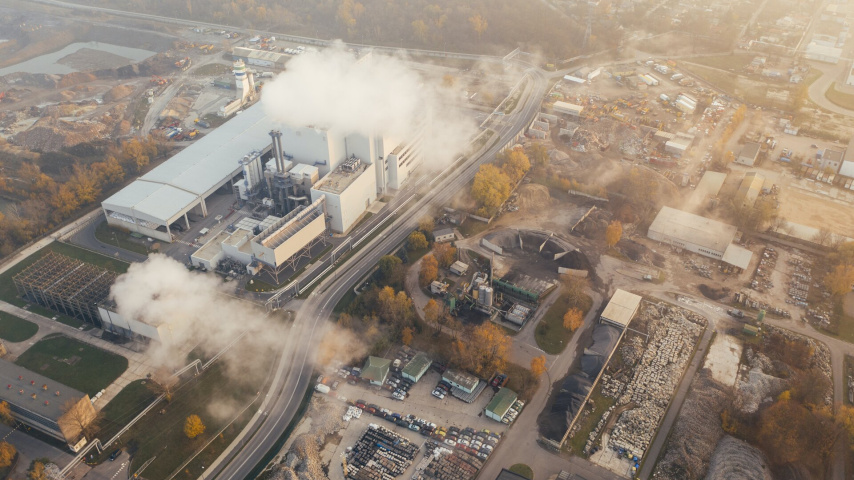Wastewater Treatment in Food Manufacturing
Within the manufacturing process, there's a flow of wastewater that contains various pollutants. If left untreated, it can harm ecosystems, water bodies, and biodiversity. Sustainable wastewater management uses advanced wastewater treatment technologies and eco-friendly strategies to handle this waste, helping food manufacturers adopt environmentally friendly practices.
For food manufacturers, this means more than expected. Implementing sustainable wastewater management practices can set them apart in the market, attracting loyal, eco-conscious consumers.
Industrial Wastewater Treatment Process in Malaysia
Wastewater treatment deals with the management and treatment of water that's been contaminated by industrial activities. Each industry generates specific types of wastewaters; hence all treatment processes may not suit all kinds when it comes to mitigating the varsity of pollutants present in it.
Primary Wastewater Treatment
The first step is known as primary treatment. This phase uses gravity to help separate suspended solid waste from the water via sedimentation tanks. This processing stage doesn't remove smaller particles or dissolved substances but plays an essential role in reducing total suspended solids (TSS).
Secondary Wastewater Treatment
Secondary treatment enhances the work begun during primary processing by focusing on biodegradable constituents left over from primary treatment. It often involves biological processes, including activated sludge process, using microorganisms to break down harmful contents like nitrogen and phosphorus.
Over time, however, newer technologies have emerged like Membrane Bioreactors (MBR). MBR integrates both secondary and tertiary treatments into one method - simplifying operations while increasing efficiency.
Tertiary Wastewater Treatment
Finally, there's tertiary treatment, which eliminates leftover particles through disinfection methods such as chlorination or UV irradiation before releasing it back into nature. This step ensures that whatever's left wouldn't harm ecosystems by maintaining a certain quality standard for release.
Specific Pollutants in Food Manufacturing Industry Wastewater
Wastewater from food manufacturing can hold different pollutants, depending on the food type. Some common ones are:
- Biochemical Oxygen Demand (BOD): Measures microorganisms' oxygen needs to break down organic matter.
- Chemical Oxygen Demand (COD): Measures oxygen needed for chemically oxidising organic matter.
- Total Suspended Solids (TSS): Gauges suspended solid particles, including fats, oils, grease, and cleaning residues.
Risks of Not Treating Industrial Wastewater
There are many risks associated with not treating industrial wastewater. These risks can impact human health, the environment, and the economy.
Impact on Human Health
|
Waterborne Diseases |
Pathogens spread through contaminated water, causing illnesses. |
|
Toxicity |
Harmful pollutants can lead to respiratory, skin issues, and cancer. |
|
Nutrient Pollution |
Excessive nutrients cause harmful algae blooms and unsafe water. |
Impact on the Environment
|
Water Pollution |
Discharging wastewater pollutes water bodies, harming aquatic life. |
|
Groundwater Contamination |
Polluted wastewater infiltrates and contaminates groundwater. |
|
Ecosystem Damage |
Untreated waste disrupts ecosystems, harming plants and animals. |
Impact on the Economy
|
Healthcare Costs |
Treating waterborne illnesses is expensive. |
|
Environmental Clean-up Costs |
Remedying polluted areas is costly. |
|
Property Damage |
Untreated wastewater damages property. |
|
Tourism Loss |
Contaminated areas deter tourists, affecting the local economy |
Ajinomoto Malaysia Berhad's Wastewater Treatment Plant

Ajinomoto Malaysia Berhad's industrial wastewater treatment is a significant step toward responsible manufacturing. Its advanced treatment facility demonstrates the company's commitment to the environment, regulations, and a sustainable future.
AMB Wastewater Treatment Plants handle diverse effluent waste treatment with advanced methods, treating wastewater effectively which meets the Standard A requirements of the Ministry of Environment and Water in Malaysia. AMB takes initiative to promote a greener future and reduce the environmental impact.
By focusing on effective water waste treatment, AMB promotes environmental stewardship and sets a benchmark for other food manufacturers. This effort drives positive change throughout the industry, making a significant impact through its wastewater treatment process.

